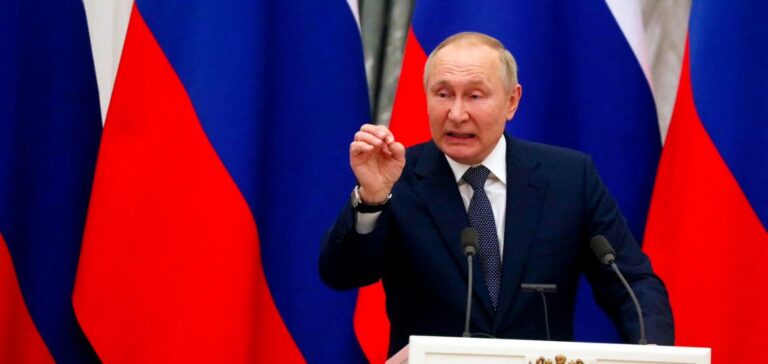Russia will no longer deliver oil or gas to countries that would cap the prices of hydrocarbons sold by Moscow, President Vladimir Putin warned Wednesday, at a time when the West is working on such a measure.
Capping prices “would be an absolutely stupid decision,” Putin said at an economic forum in Vladivostok (Russian Far East).
“We will not deliver anything at all if it is contrary to our interests, in this case economic. No gas, no oil, no coal (…). Nothing,” he added.
“We will not supply anything outside the framework of contracts” signed with importing countries, Mr. Putin said before Russian and Asian economic leaders. “But those who are trying to impose something on us are not in a position today to dictate to us,” he said.
The Russian leader called on European countries to “come to their senses” at a time when voices are being raised in the West accusing Russia of using energy as a “weapon” in retaliation for sanctions related to Russian military intervention in Ukraine.
Accusations rejected Wednesday by Vladimir Putin: “Again a nonsense!
According to the Russian president, the Europeans, faced with soaring prices, “have several solutions: either subsidize the high prices (of energy), (…) or reduce consumption.
“From an economic point of view, it is correct. But from a social point of view, it is dangerous. It can cause an explosion,” he warned.
“It is better to respect contractual obligations, civilized rules,” he argued. “It is impossible to undermine +objective+ economic laws. Otherwise it will come back to you like a boomerang,” he warned.





















